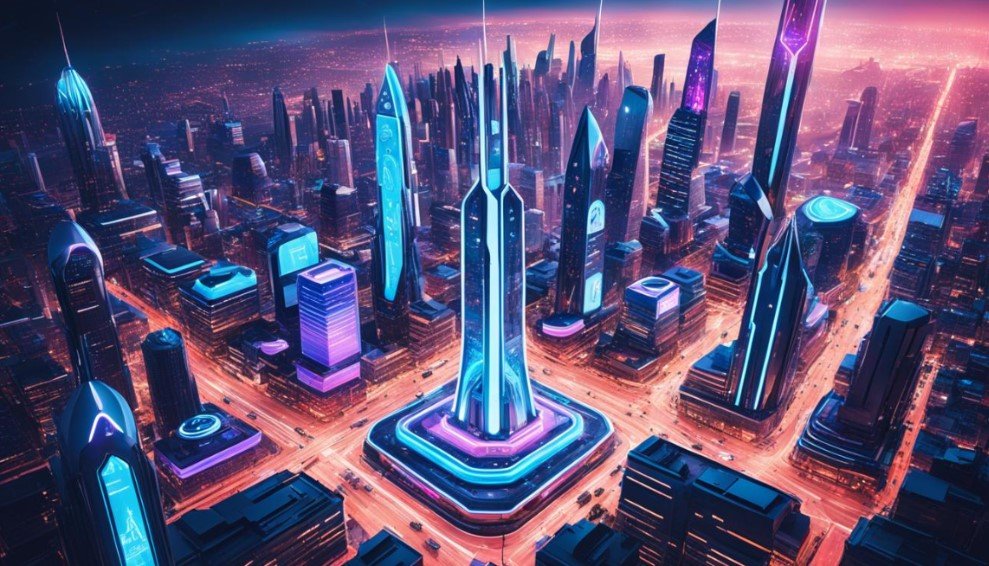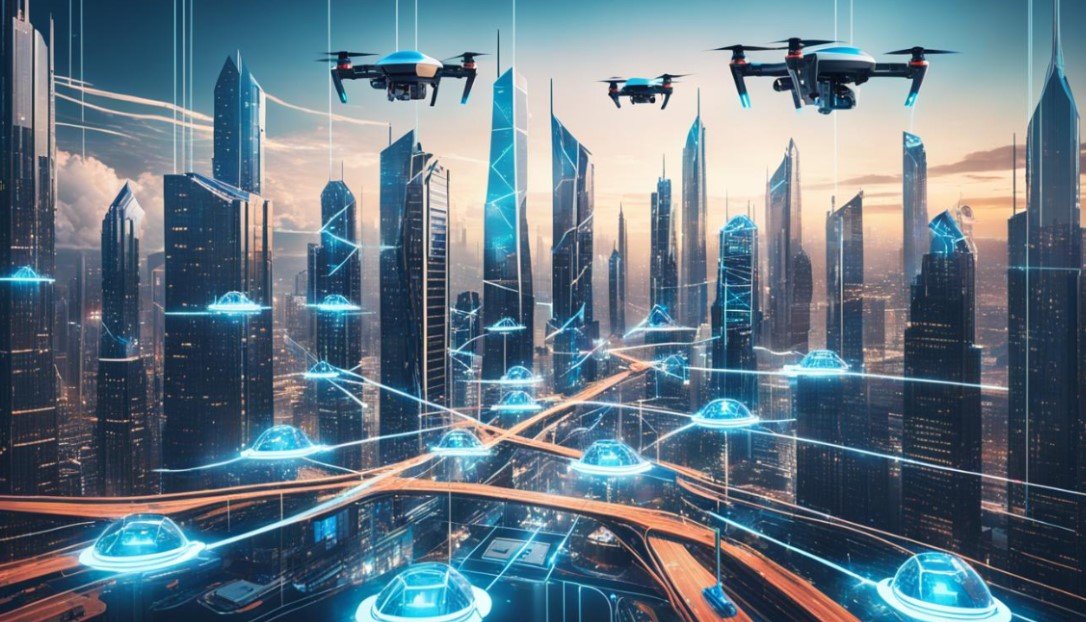Tech
AI Software: Transforming the Future of Technology

Artificial intelligence (AI) has changed the way we see technology’s future. It started in the mid-20th century and has grown into a key part of many industries. Now, AI and cloud computing work together, making AI-driven cloud services that change industries.
AI programs are getting better, transforming how we use technology with the help of advanced AI development services. They assist with automated coding, finding bugs, and predicting when things need fixing. They also empower small businesses to create their own logos easily.
The future looks bright for AI in different industries. We’ll see more AI help with coding, fixing bugs, and making user experiences better. As companies use AI, they’ll get more efficient, innovative, and ahead in the fast-changing tech world.
The Rise of Artificial Intelligence
Artificial intelligence (AI) has a long history that started in the 1950s. The first AI program was made by Christopher Strachey in 1951. It was a checkers program that played a full game on the Ferranti Mark I computer at the University of Manchester.
Since then, AI has grown a lot. Big events like IBM’s Deep Blue beating chess grandmaster Garry Kasparov in 1997 and IBM Watson winning Jeopardy! in 2011 marked its progress.
AI’s growth is linked to machine learning and deep learning. As computers got more powerful, AI could solve harder problems and think more like humans.

According to the Pew Research Center, 63% of experts think most people will be better off by 2030 thanks to AI. But 37% worry that most people won’t be better off because of too much AI.
This shows there’s a big debate about AI’s future impact. It’s important to think about the ethical sides of AI and its risks.
Experts say we should put people first when it comes to AI. We need to make sure AI is used in a way that’s fair and responsible.
The Convergence of AI and Cloud Computing
The mix of AI and cloud computing has changed how businesses work and innovate. It combines the cloud’s big capacity with AI’s advanced skills. This helps companies innovate, make better decisions, and give customers what they want.
Big cloud companies like AWS, Azure, and Google Cloud are adding AI and machine learning to their services. This makes AI easier and cheaper for businesses to use. It has led to the use of hybrid and multi-cloud setups. These allow companies to use both public and private clouds.
Edge computing is also growing. It lets companies make quick decisions by processing data close to where it happens. Big cloud companies are investing a lot in this area. They’re also creating special hardware like Google’s TPUs and AWS Inferentia for AI and deep learning tasks.
New breakthroughs in AI, like GPT-4, PaLM, and DALL-E 2, are making AI more useful for businesses. These advances let AI create text, images, and code that looks like it was made by a human. This is changing many industries.

Putting AI and cloud computing together has many benefits for businesses. It speeds up automation, makes things more efficient, helps with decision-making, and boosts productivity. By using AI and cloud together, companies can look through huge amounts of data, find important insights, and make smart choices that help them grow and innovate.
The need for AI-driven cloud systems is growing. The future of cloud computing looks set to be smarter and more adaptable. With ongoing improvements in natural language processing, cybersecurity, and automation, AI and cloud will change how businesses work and succeed in the future.
AI Programs: Driving Intelligent Automation
AI programs lead the way in making businesses smarter and more efficient. They help automate tasks, cut down on mistakes, and make decisions faster. At the heart of Intelligent Automation (IA) are artificial intelligence (AI), business process management (BPM), and robotic process automation (RPA).
AI programs make decisions and predict outcomes by looking at lots of data with machine learning and complex algorithms. BPM makes workflows smoother and more consistent across different fields. RPA uses software robots for tasks like data entry and filling out forms, working with AI to tackle harder tasks.
Intelligent automation brings big wins, like lower costs, better accuracy, happier customers, and following the rules. AI is now used in many areas, from cars to healthcare and insurance, making things run smoother and smarter.
The COVID-19 pandemic sped up the move to digital, making companies invest more in IA as more people work from home. This shift has changed jobs and forced people to adjust to new work settings. IA is seen as the next big thing in work, helping companies stay ahead by automating routine tasks. With the chance to add up to $132 billion to the U.S. economy, AI programs are changing how businesses work, opening new doors and pushing intelligent automation forward.
AI in Manufacturing: Towards Autonomous Supply Chains
The manufacturing industry is leading the way in using AI. This technology is key to making supply chains run on their own. It moves through four stages: seeing what’s happening, making things better, predicting what will happen, and making decisions by itself.
First, AI tools give us a clear view of the supply chain. They track inventory, shipments, and logistics in real-time. This helps spot problems and areas that need to get better. Then, advanced analytics and decision intelligence take over. They use big data to make processes better, predict demand, and manage inventory automatically.
Next, predictive AI and machine learning help us see what might happen next. They can predict disruptions and changes in what customers want. This lets companies plan ahead and take advantage of new chances.
The top level is when AI makes decisions on its own in complex situations. This is key in today’s fast-changing world. It lets supply chains quickly adjust to new situations and customer needs.
AI is already making a big difference in manufacturing. It helps plan better, predict demand, and makes things more efficient. This means companies can save money and do more with less. As AI keeps getting better, we’re seeing a clear path to fully automated supply chains. This is changing the future of manufacturing.
Ethical Considerations and Risks
AI technology is growing fast, bringing ethical concerns and risks. One big worry is AI bias. This happens when AI systems use data that has biases against race, gender, or social class. It’s important to make AI fair to avoid discrimination and ensure everyone is treated equally.
Transparency is also key in AI ethics. Users need to know how AI systems work and how their data is used. It’s vital to protect user data and stop it from being misused. This helps keep trust and protects privacy.
Safety is a big concern as AI becomes part of our lives. We must make sure AI doesn’t harm users or cause accidents. We also need to think about how AI will affect society and the environment in the long run.
Explainability is another ethical issue with AI. Users should understand how AI makes decisions and get clear explanations when needed. A human-centered design approach is important. It means putting users first and making sure AI fits with human values and laws.
As AI laws change, like the European Union’s AI Act, it’s important for businesses and policymakers to work together. They need to focus on fairness, transparency, privacy, and safety. This way, AI can be used in a responsible and ethical way, benefiting everyone.
The Future of AI Integration Across Industries
The future of AI integration is full of exciting possibilities. AI is getting better fast and will work with cloud computing, edge analytics, sustainability, and new tech. This will shape the next few years. More companies are using AI, which will change many areas like manufacturing, healthcare, finance, and education.
In manufacturing, AI will help with predictive maintenance and make supply chains run smoother. Healthcare will see big changes, speeding up drug discovery and improving disease diagnosis. AI will also help in finance by spotting fraud and making smarter decisions.
The media industry will use AI to create content just for you and help journalists do their jobs better. As AI becomes more common, it will make things more automated, efficient, and tailored to what we want. But, it will also bring up tough questions about jobs, being green, and making AI right.
Handling these issues will be key as we dive deeper into using AI in different fields. It’s a big change that will affect everyone, but it could also bring great benefits.
FAQ
What is the history and evolution of artificial intelligence?
Artificial intelligence started in the 1950s. The first AI program was made by Christopher Strachey in 1951. It was a checkers program that played a full game on the Ferranti Mark I computer at the University of Manchester.
Since then, AI has grown a lot. Big moments include IBM’s Deep Blue beating chess grandmaster Garry Kasparov in 1997. Also, IBM Watson won Jeopardy! in 2011.
How has the convergence of AI and cloud computing transformed industries?
AI and cloud computing together have changed businesses a lot. They make it easier for companies to innovate and make better decisions. This helps give customers what they want.
How are AI programs driving intelligent automation in businesses?
AI programs are leading the way in making businesses smarter. They help automate tasks, cut down on mistakes, and make decisions faster.
What is the role of AI in the manufacturing industry’s journey towards autonomous supply chains?
The manufacturing industry is using AI a lot. It’s key to making supply chains work on their own. This process has four steps: basic automation, predictive maintenance, autonomous planning, and self-optimization.
What are the ethical considerations and risks associated with the widespread adoption of AI technologies?
AI has many benefits, but it also brings up ethical issues. These include AI bias, privacy concerns, and the need for rules on AI.
What is the future of AI integration across industries?
The future of AI looks exciting. It will keep getting better and will work with cloud computing, edge analytics, and sustainability. This will lead to more changes and innovations in different areas.













